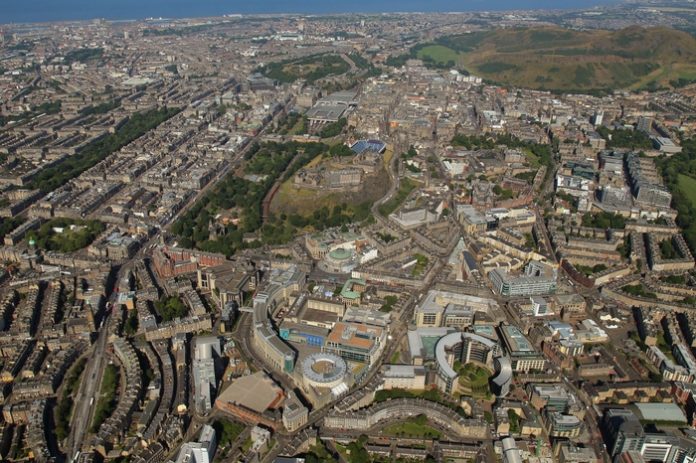Scotland’s capital has been named as one of the world’s top 20 major cities for wellbeing – ahead of London – according to a new study from Knight Frank.
As part of its Wealth Report 2020, the independent property consultancy has developed a new City Wellbeing Index which considers a range of factors – including lifestyle, healthcare, and access to green spaces – to identify cities leading the way when it comes to quality of life.
Edinburgh scored particularly well for happiness (11th) and governance (12th), safety (15th), as well as work-life balance (16th) – calculated based on the number of hours worked per day of annual leave. Employees in Edinburgh were found to work 80.1 days on average, for every day of holiday.
Perhaps unsurprisingly, Edinburgh fell short on sunshine hours compared to most other major cities. Dubai took the top spot with more than 3,500 hours of fair weather per year.
According to the report, cities that earned a spot on the Wellbeing Index are more likely to attract entrepreneurs, skilled employees and encourage start-ups companies, as well as large corporates, to grow and succeed.
Simon Capaldi, Partner at Knight Frank Edinburgh, said: “People living and working in Edinburgh benefit from the city’s high standards of living – something which doesn’t come with the same price tag as other UK cities. It’s around one-third cheaper for businesses to set up here than in London, making the Scottish capital city an attractive place for entrepreneurs and established businesses to put down roots.
“The city also benefits from a highly educated talent pool, with a graduate population of nearly 50,000 and 47% of final year students who plan to remain in the city. We’re seeing a boost among the city’s tech sector, in particular, but across the board office space continues to be in high demand with existing businesses expanding and new companies setting up here.
“As the workplace evolves, with greater emphasis on wellbeing and work-life balance, we’re likely to see an increase in the demand for flexible offices and co-working space to reflect this lifestyle shift. WeWork arrived in the city last year and within one month had signed up 1,000 members, letting all but one of its offices. Despite this, serviced office space currently accounts for a mere 2% in Edinburgh – far behind the 20% seen in many other UK cities.”
Knight Frank’s Wealth Report also identified a number of up-and-coming residential neighbourhoods as ‘ones to watch’ over the next five years, with Edinburgh’s Leith Walk and East New Town making it into the global top 40.
This list was compiled following detailed analysis of transport links, employment opportunities and regeneration projects which identified the locations, neighbourhoods and villages expected to prosper. London’s Maida Vale was the only other UK hotspot highlighted on the shortlist as an area for potential investors to consider.
Luxury residential property prices in Edinburgh also increased by 2.0% in 2019, placing the city in 51st position on Knight Frank’s Prime International Residential Index (PIRI) of 100 global cities. The capital finished ahead of cities including Singapore (1.2%), Dublin (-0.9%) and London (-2.6%).
Simon Capaldi added: “Central neighbourhoods such as Leith Walk and East New Town are continuing to prove a popular choice for residential property investors. New developments include the likes of the former Royal Bank of Scotland’s site on Dundas Street – the largest project of its kind in the Scottish capital for more than a decade – which is set to become a mixed-use site including a hotel, shops and offices, as well as a number of homes. The area will also benefit from improved transport links through the Newhaven tram extension on Leith Walk, with works expected to be completed next summer.”



















